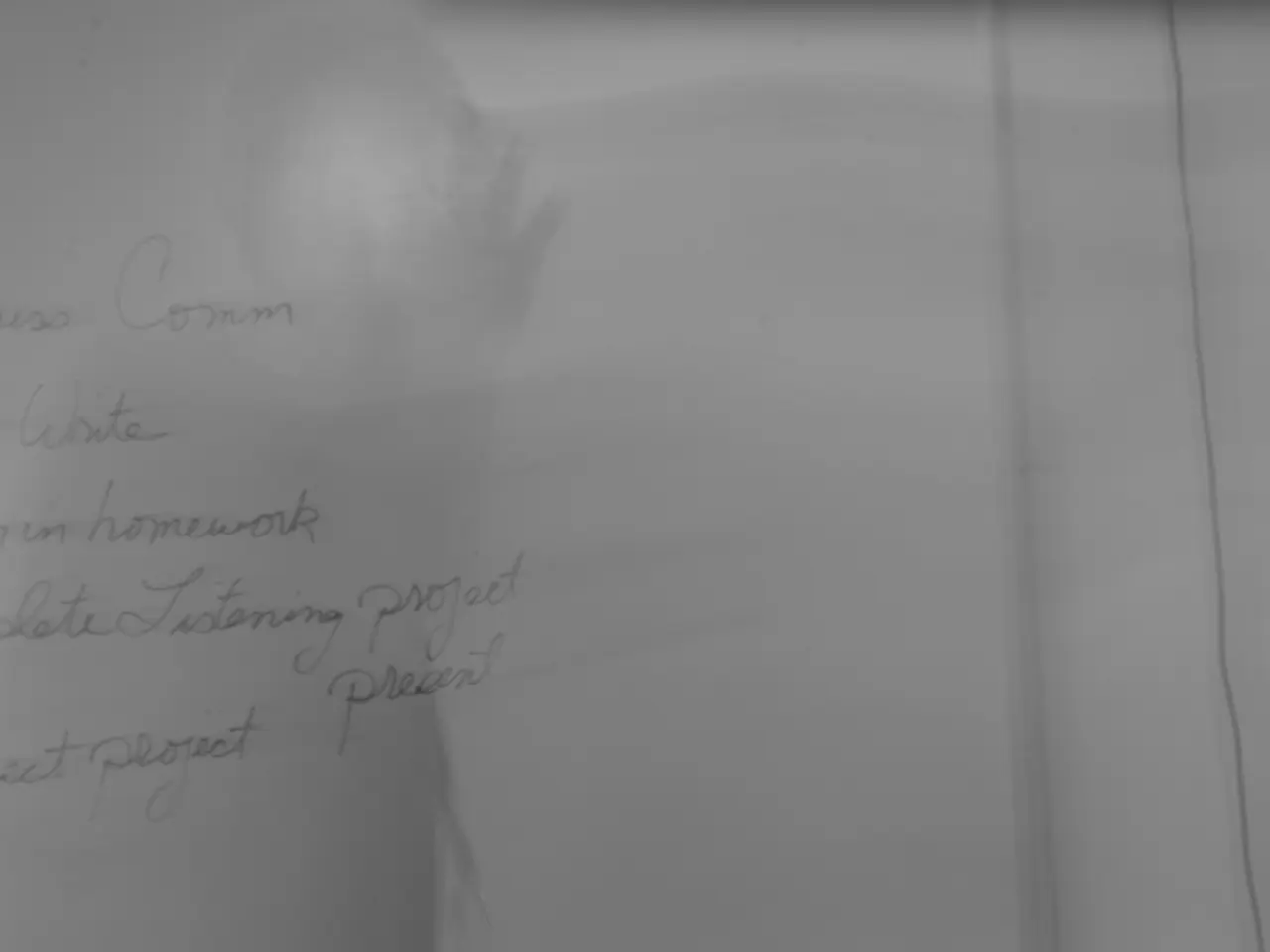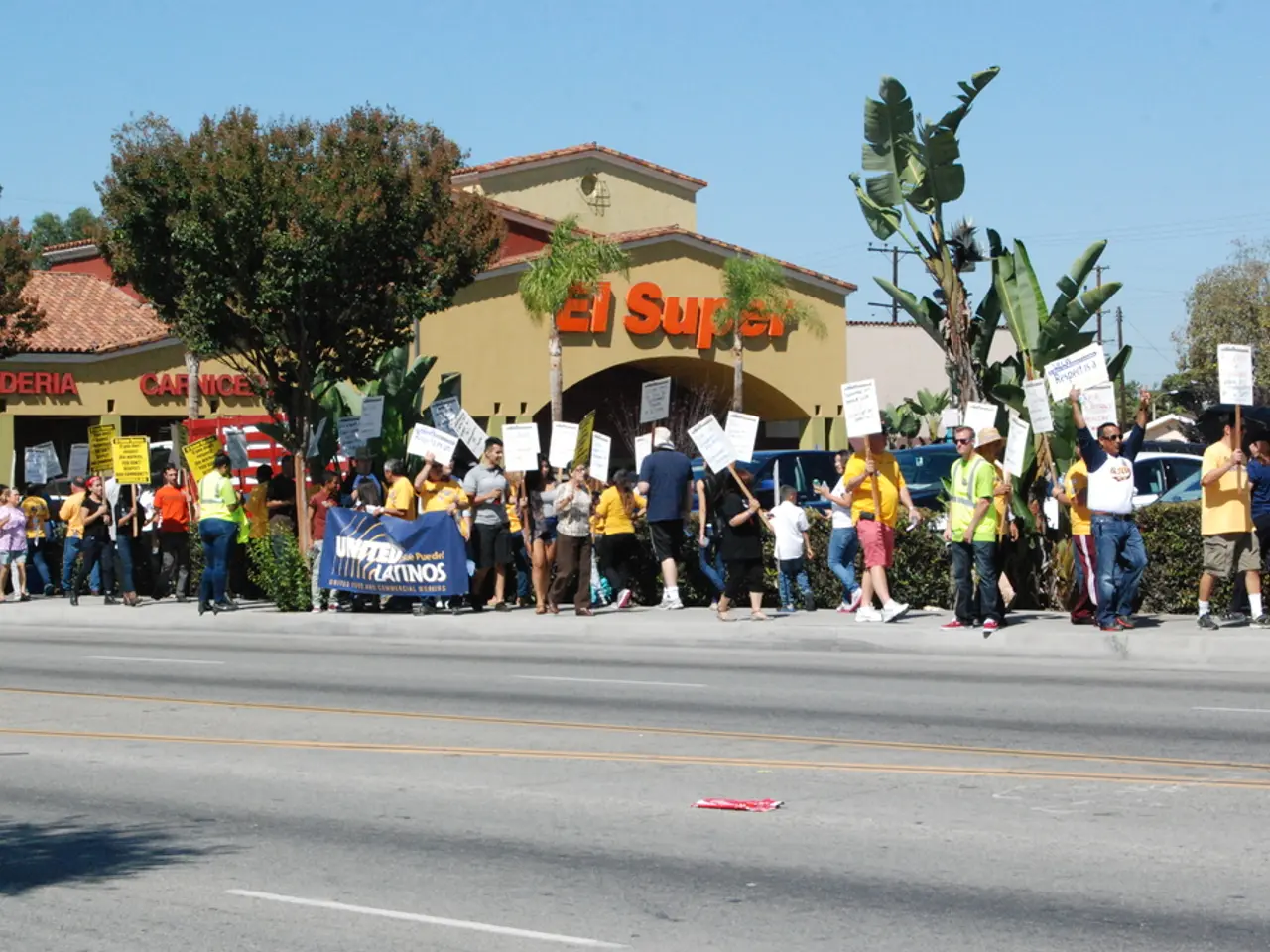Chancellor Merz faces support from Free following alleged Israeli coup accusations
The Christian Social Union (CSU) has expressed concern over Chancellor Friedrich Merz's decision to halt arms exports to Israel. The CSU feels sidelined as Merz acted unilaterally without consulting them on this highly sensitive foreign policy matter.
The decision to suspend arms exports was in response to Israel's intensified military operations in Gaza, which Germany opposes due to concerns over civilian suffering and the potential annexation of the West Bank. However, Merz's change in stance from his previous criticism of a temporary arms delivery halt under the former government has added to the controversy within his party and the CSU.
The CSU leaders, including parliamentary group leader Alexander Hoffmann, have called for internal coalition talks due to the decision. They view the unilateral decision as damaging to German-Israeli relations and party unity. The CSU places great importance on Israel's security as part of its state policy, making the arms export suspension a significant departure.
Chancellor's Office Minister Thorsten Frei has dismissed accusations that the halt of certain arms exports signals a risky shift in Germany's Israel policy. He asserts that Germany continues to support Israel in all that is necessary to defend its existence and security. The fundamentals of German Israel policy remain unchanged, according to Frei.
CSU MP Stephan Mayer has criticized the decision to halt arms exports to Israel as a "false symbol policy." Mayer believes the decision is strategically misguided and rewards Hamas, a terrorist organization. He also states that Germany is more dependent on Israel for security policy matters than Israel is on Germany.
The halt of certain exports applies to arms that could be used in the Gaza Strip. However, all that serves Israel's self-defense, such as air and sea defense, is not affected by the export halt. The concern is for the humanitarian situation in the region, as the taking of Gaza City could mean a high civilian toll.
The foreign policy experts of the CDU/CSU parliamentary group are scheduled to meet for a video conference to discuss the matter further. The CSU's demand for internal coalition talks indicates a deep divide within the coalition over this sensitive issue.
[1] "Israel criticizes the German arms export halt." (Source) [2] "CSU feels sidelined by the decision to halt arms exports to Israel." (Source) [3] "Chancellor Merz temporarily halted exports of arms that could be used in the Gaza Strip." (Source) [4] "Chancellor's Office Minister Thorsten Frei dismisses accusations that the halt of certain arms exports signals a risky shift in Germany's Israel policy." (Source) [5] "CSU MP Stephan Mayer criticizes the decision to halt arms exports to Israel as a 'false symbol policy'." (Source)
- The Community policy, as advocated by the CSU, has been tested with the unexpected unilateral decision by Chancellor Friedrich Merz to halt arms exports to Israel, a matter traditionally discussed within the coalition.
- Amid controversy over the halt of arms exports, the politics surrounding Germany's Israel policy will be a focal point of discussions among foreign policy experts of the CDU/CSU parliamentary group, especially given the escalating war-and-conflicts in Gaza and potential repercussions on general-news.






